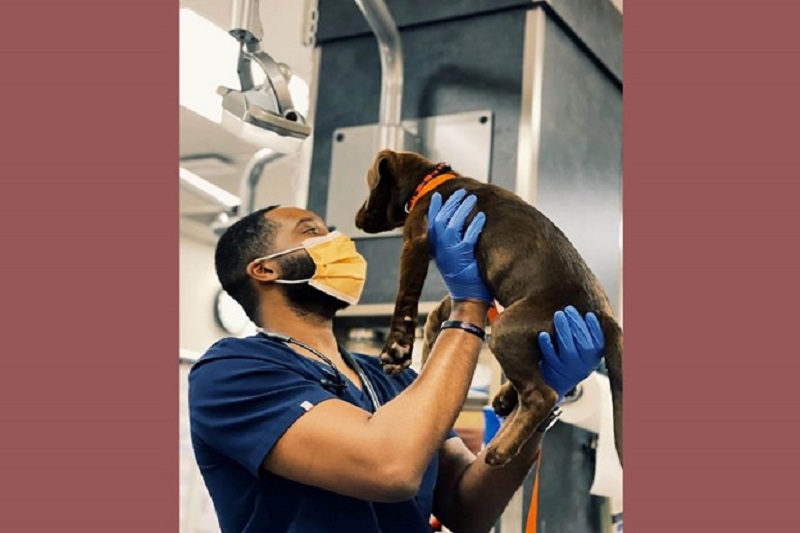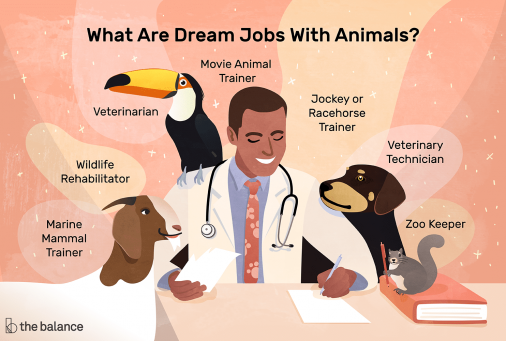
Introduction to the Inspiring Life of Author Mildred D. Taylor
Introduction You’ve probably read a few books in your lifetime. But have you ever read a book that changed your life? That’s what Mildred D.

Do you like animals and science? Do you look after your family pets like they’re members of your own family? Have you ever wondered how it would be to work with animals full-time, not just on the weekends or in the summer?
If so, becoming a Veterinarian could be an ideal career choice for you. In fact, many people aspire to become a veterinarian, and it is easy to understand why: It pays well and fulfills your passion for serving animals. However, becoming a veterinarian is a challenging road.
Still, anything worth having never comes easy. So, let’s look at this career choice in detail.
A Veterinarian is an animal doctor who diagnoses, treats, and studies animals to keep them healthy. They are similar to human doctors in that they have done four years of college, four years of medical school, three years of residency training, and passed the board exam before being able to practice as a Veterinarian. They also require the same state and federal licenses as human doctors.

A Veterinarian’s job is a wide-ranging one.
First, they diagnose and treat diseases and injuries using a variety of treatments, such as injections or surgery. They also oversee the administration of medicines that animals receive every day.
Next, Veterinarians do research to find new ways to prevent and treat diseases that animals get. They also work on a number of animal-related issues, such as the humane treatment of animals and proper methods for raising livestock.
Finally, Veterinarians provide advice on the care of pets to their clients on a daily basis. This includes prescribing necessary medicines or recommending an appropriate diet for your pet dog or cat.
If you’re considering becoming a Veterinarian, the first thing you should do is research and decide if this profession is right for you.
Things to think about include your living expenses, your medical school debt, and what sort of lifestyle you want to live concerning money and hours worked. Once all of those things are decided, here is the pathway to becoming a Veterinarian in the United States:
High School
First, you should graduate from high school with excellent grades and take one or two years of biology courses at college, along with math courses.
The next step is earning a Bachelor’s Degree in Veterinary Science or any pre-med major that contains a lot of biology.
Complete Bachelor’s Degree
After college, students should apply for a Veterinarian Medical Degree from an American Veterinary Medical Association-accredited veterinary school or Canadian College of Veterinary Medicine. All applicants have to take the Veterinary Medical School Admission Test (VMSAT) and submit their secondary school transcript and two letters of reference. Applicants also have to submit a personal essay.
Once accepted into veterinary school, students must complete four years of coursework consisting of basic science classes and clinical courses. The last two years are spent mostly in the classroom learning veterinary medicine with some time spent in laboratories or hospitals for hands-on experience. Students also learn about animal husbandry, business management, lab techniques, and more.
Become Licensed
To graduate, students must pass the North American Veterinary Licensing Examination (NAVLE). They must also complete three to four years of supervised clinical training at their school’s teaching hospital or clinical practice not less than 24 months and no more than 48 months after graduation.
After graduating, Veterinarians have to apply for a state license to practice medicine. Each state requires the same licensing process as human doctors, which includes:
1) Graduation from an accredited veterinary program,
2) Passing the NAVLE exam, and
3) Completing a residency.
To become a board-certified specialist, Veterinarians have to complete a three-year residency program in the area of their specialty, such as surgery, internal medicine, etc.
Once Veterinarians finish their training and licensing requirements, they can pursue a career of their choice that allows them to work with animals.

Most veterinarians are employed by private practices or clinics, usually as employees rather than independent business owners. Some veterinarians work directly for the federal government, the military, state governments, pharmaceutical companies, animal health companies, animal food companies, zoos, and aquariums.
Moreover, Veterinarians also work at universities and colleges teaching students of veterinary science.
Some possible job designations for Veterinarians are:

The average Veterinarian salary in the United States was $99,963 in 2021. But, the salary can range from anywhere between $78,500 and $126,849.
Obviously, not all places will pay the same salary to a Veterinarian. If you wish to earn well while indulging your love of animals, try to develop new skills and complete additional certifications.
If you are highly skilled, professionally trained, and have extensive experience, you will be rewarded and highly paid.
Besides offering high annual salaries, the field of veterinarians projects a remarkable 17% growth from 2020 to 2030. This is much faster than the average job outlook for other occupations.
In that period, more than 4400 job vacancies are expected to become available for aspiring veterinarians over the next decade. Some of these jobs will be to fill in new positions, while a few will replace the workers who retire or change their professions.
All in all, becoming a Veterinarian can be an excellent decision. It gives you a chance to join the third most popular health care profession (after Doctors and Dentists) and be respected. Like all doctors, you get to wear a stethoscope, save lives, and channel your inner love and care for pets and animals.
So, besides paying yourself well, you do get a sense of reward and fulfillment when you become a veterinarian and treat sick or injured animals
Veterinarians Associations

Introduction You’ve probably read a few books in your lifetime. But have you ever read a book that changed your life? That’s what Mildred D.

So you’re interested in becoming a podiatrist? That’s great! Podiatry is a fascinating and multifaceted field that can lead to a rewarding career. But before

If you’re not familiar with Sharon Flake, she’s a prolific author of young adult literature. Her books explore tough issues facing teenagers, from racism and

Hi, art lover! We wanted to introduce you to Shane W Evans, an extremely popular illustrator, and author. Evans was born in Columbus, Ohio, in